AHRC-funded PhD Studentships are available for two full-time doctoral research students at the Faculty of Music, University of Cambridge as part of the AHRC Research Centre for Musical Performance as Creative Practice (CMPCP). Continue reading
The New Grove Dictionary of Musical Instruments
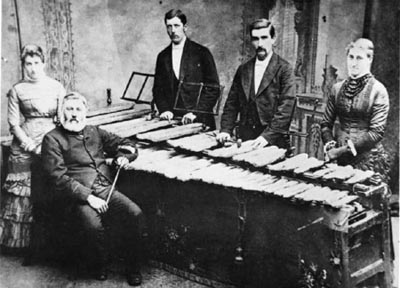
Oxford University Press intends to publish a second, revised and expanded edition of The New Grove Dictionary of Musical Instruments, originally issued in 1984. Reflecting advances in scholarship during the past quarter-century, the second edition will encompass a greater range of subjects in more detail, thus serving a larger community of readers worldwide. Continue reading
IASPM-US 2010 – Births, Stages, Declines, Revivals
2010 Conference of the International Association for the Study of Popular Music – U.S. Branch
New Orleans, Louisiana, April 9-11
Deadline for abstracts: 1st December, 2009
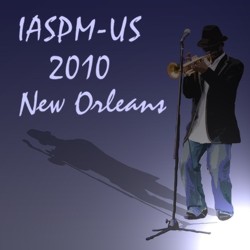
New Orleans has long been known as the “birthplace of jazz;” more recently, it has become a signifier for ruin. The chaos wrought by Hurricane Katrina in 2005 signaled a shocking sense of loss in the music world: some musicians lost their lives and many lost their livelihoods; the city’s ubiquitous choirs, marching bands, and parades were disrupted and displaced. Residents of New Orleans, particularly the working poor, were evacuated and have yet to permanently return. And yet, at the same time, both remaining and former residents have fought to hold on to and even revive their cherished culture. Continue reading
Michael Jackson: Musical Subjectivities
Popular Music and Society Special Issue
Edited by Susan Fast and Stan Hawkins
Call for Submissions
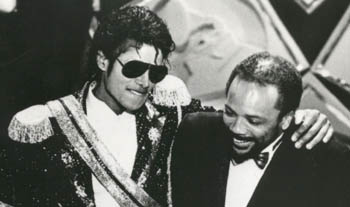
Submissions are invited for a special edition of Popular Music and Society that examines constructions of subjectivity in Michael Jackson’s music, with a focus on gender, sexuality, age, disability, and race. Contributors are invited to address ways in which Jackson’s vocality, grooves, rhythmic invention, songwriting, conformity with and/or irreconcilability of generic categories, particular songs, song categories (such as ballads) or albums, record production, use of technology, and live or mediated performance work to produce his own, often spectacularized, subjectivities, as well as those of his listeners. Continue reading
Ideologies and ethics in the uses and abuses of sound
Koli, Finland
June 16-19, 2010
Call for papers (reminder): abstracts by October 12
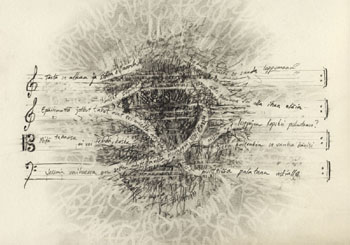
The 2010 WFAE conference will be held at Koli in Eastern Finland. Koli is a plausible site for reflecting upon ideologies, ethics and soundscapes, since it was amongst the key places of the national romantic artist pilgrims in the late 19th century Finland. The main organisers, Department of Finnish Language and Cultural Research at the University of Joensuu, Finland and The Finnish Society for Acoustic Ecology (FSAE) invite researchers and artists from all disciplines to join this forum of discussion. Continue reading
What’s it worth? ‘Value’ and Popular Music
Call for papers
Abstract deadline extended to September 15
Annual Conference of IASPM-ANZ
International Association for the Study of Popular Music
Australia-New Zealand branch
27-29 November 2009
The theme of this year’s conference seeks to generate discussion and debate around the ‘value’ we ascribe to popular music(s). ‘Value’ relates to music as commodity and economic project, but social, cultural and aesthetic perspectives profoundly inform any measures or contentions of ‘value’. This theme is particularly timely given recent technological developments that are radically re-shaping the ways in which music is produced, distributed and consumed. Continue reading
Bethany Klein (2009) As Heard on TV: Popular Music in Advertising
Bethany Klein
As Heard on TV: Popular Music in Advertising
(Aldershot: Ashgate 2009)
Review by Francesco D’Amato

The complex whole of ties between music and TV ads has been recently pushed to the foreground by the changes in the music production/commercialization system and correlated shifts from B2C to B2B business models. However it represents a relevant topic also for discourses about music circulation, changes in musical experience and how such processes join the aesthetization of daily life. Continue reading
Spaces of Violence, Sites of Resistance: Music, Media and Performance
International Conference – June 3rd to June 6th 2010
The Interactive Media and Performance (IMP) Labs, along with the Department of Media Production and Studies, and the Faculty of Fine Arts at the University of Regina are pleased to present a call for papers, panels, roundtables, and workshops on the theme of Spaces of Violence, Sites of Resistance: Music, Media and Performance, an international conference organized in collaboration with IASPM-Canada and the Canadian Society for Traditional Music (CSTM). Continue reading
Musics and Knowledge in Transit
Call for Proposals
October 28-31, 2010
Rectory of the Universidade Nova de Lisboa
Lisbon, Portugal
The Ethnomusicology Institute – Center for the Study of Music and Dance is pleased to host the international conference ‘Musics and Knowledge in Transit‘ at the Rectory of the Universidade Nova de Lisboa from October 28 to 31, 2010.
The official languages of the conference are: Portuguese, Spanish and English. Continue reading
Stan Hawkins (2009) The British Pop Dandy
Stan Hawkins
The British Pop Dandy: Masculinity, Popular Music and Culture
(Aldershot: Ashgate 2009)
Review by Nathan Wiseman-Trowse
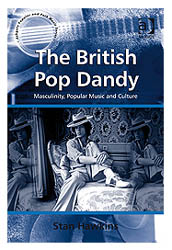
In 1999 the British pop band The Divine Comedy released one of their most successful singles ‘National Express’. Secreted away as a B-side on the second CD single was a wonderfully wry and affectionate Noël Coward pastiche ‘Overstrand’. ‘Overstrand’ told the story of a Londonite coveting a well-to-do address in the metropolis to such an extent that he is willing to pimp himself to a ‘dirty old man’, murder a young woman in the Thames or even write for the Evening Standard in order to get his ideal, bourgeois home. Neil Hannon’s clever take on Coward marks out a clear link not only to a tradition of British comedy songs that have their roots in music hall, but he also connects himself, if somewhat archly, with a dandified persona that manifests itself throughout British popular culture, and British popular music specifically. Continue reading
